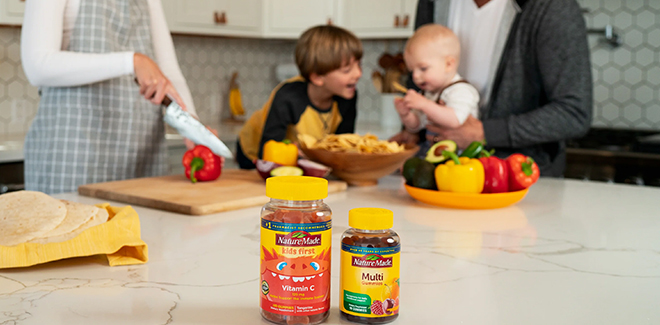Parenting a child with Attention-Deficit/Hyperactivity Disorder (ADHD) can be challenging, but with the right strategies and support, you can help your child thrive.
One key aspect of raising a child with ADHD involves fostering a structured and consistent environment. Children with ADHD often benefit from routines that provide predictability and help them manage their impulses and attention spans. Setting clear expectations and offering visual schedules can aid in establishing these routines. Additionally, finding a balance between structure and flexibility is crucial, allowing room for spontaneous activities while maintaining a reliable framework. By consistently reinforcing positive behaviors and employing effective communication, parents can create a stable foundation that assists their child in managing their symptoms.
Patience and understanding are paramount when raising a child with ADHD. Parents should recognize that impulsive behavior and difficulty focusing are not deliberate choices, but rather manifestations of the disorder. By reframing challenges as opportunities for growth, parents can instill a sense of resilience and self-confidence in their child. It’s important to emphasize their strengths and celebrate their achievements, helping to build a positive self-image and counteract potential feelings of frustration or inadequacy.
Collaboration with professionals, such as therapists, educators, and doctors, is another integral aspect of raising a child with ADHD. These experts can provide valuable insights, tools, and strategies to manage symptoms and optimize the child’s development. Individualized education plans (IEPs) or 504 plans can help tailor classroom environments to the child’s needs, ensuring they receive the support required to excel academically and socially. By working in tandem with a network of professionals, parents can enhance their child’s chances of reaching their full potential while navigating the intricacies of ADHD.
What Is ADHD?
ADHD stands for Attention Deficit Hyperactivity Disorder. ADHD is a neurodevelopmental disorder that affects children’s ability to focus, regulate their impulses, and manage their behavior. This article aims to provide parents with practical tips and insights on how to effectively parent a child with ADHD, fostering their development and well-being.
What is the best parenting style for ADHD?
Educate Yourself about ADHD: The first step in effective parenting is to understand ADHD and its impact on your child. Educate yourself about the symptoms, causes, and treatment options for ADHD. This knowledge will help you approach your child’s behavior with empathy and a deeper understanding of their challenges.
Establish Clear and Consistent Routines: Children with ADHD benefit greatly from predictable routines. Establish structured daily routines for meals, homework, playtime, and bedtime. Consistency and predictability help your child feel secure and provide a framework for them to follow.
Set Clear Expectations and Rules: Clearly communicate your expectations and establish age-appropriate rules for behavior. Keep instructions simple, concise, and specific. Break tasks into smaller, manageable steps, and provide positive reinforcement when your child follows the rules or completes a task successfully.
Create a Supportive Environment: Organize your child’s environment to minimize distractions and promote focus. Create a designated study area free from clutter, noise, and visual distractions. Use color-coded systems, charts, and labels to help your child stay organized and remember important tasks.
Use Positive Reinforcement: Positive reinforcement is a powerful tool in shaping your child’s behavior. Praise and reward your child for their accomplishments, effort, and progress. Celebrate small victories, and provide encouragement to boost their self-esteem. Focus on their strengths and highlight their positive attributes.
Provide Clear and Direct Instructions: Children with ADHD often struggle with following directions. To enhance their understanding, use clear and direct instructions. Break tasks into smaller steps and repeat the instructions if necessary. Visual cues, such as charts, checklists, and visual timers, can also be helpful in reinforcing instructions.

Encourage Physical Activity and Breaks: Physical activity helps children with ADHD release excess energy and improves their focus and concentration. Encourage regular exercise and provide opportunities for your child to engage in active play. Additionally, incorporate short breaks during homework or other tasks that require sustained attention.
Foster Effective Communication: Maintain open lines of communication with your child. Encourage them to express their thoughts, emotions, and frustrations. Be an active listener and validate their feelings. Engage in regular conversations about their challenges and successes, providing a supportive and understanding environment.
Collaborate with Teachers and Professionals: Develop a strong partnership with your child’s teachers and healthcare professionals. Share information about your child’s ADHD diagnosis, treatment plan, and strategies that work best for them. Collaborate on individualized education plans (IEPs) or 504 plans to address your child’s specific needs at school.
Take Care of Yourself: Parenting a child with ADHD can be demanding, both emotionally and physically. Connect with other parents who are navigating similar challenges. Join parenting groups, Remember to prioritize self-care and seek support when needed. Establish a support network with other parents who understand your challenges. Make time for activities that rejuvenate you and reduce stress, ensuring you have the energy and patience to support your child effectively.
Conclusion:
Parenting a child with ADHD requires patience, understanding, and a tailored approach. By implementing these strategies, you can create a nurturing environment that supports your child’s development and helps them thrive. Remember, each child is unique, and it may take time to find the strategies that work best for your family. Stay positive, embrace your child’s strengths, and celebrate their progress along the way. With love, support, and guidance, you can empower your child with ADHD to reach their full potential.

How can I treat my child with ADHD at home?
Teach Self-Regulation Techniques: Children with ADHD may have difficulty controlling their impulses and emotions. Teach your child self-regulation techniques such as deep breathing exercises, mindfulness, and self-calming strategies. Encourage them to take breaks and engage in activities that help them relax and refocus.
Seek Professional Guidance: Consider consulting with professionals specializing in ADHD, such as psychologists, therapists, or pediatricians. They can provide valuable insights, offer additional strategies, and recommend appropriate therapies or medications if necessary. Professional guidance can complement your efforts as a parent and support your child’s overall well-being.
Foster Social Skills Development: Children with ADHD may face social challenges due to impulsivity or difficulty with social cues. Help your child develop social skills by providing opportunities for social interaction, such as playdates or joining clubs and activities where they can interact with peers. Teach them appropriate social behaviors, such as active listening, taking turns, and empathy.
Encourage Independence and Self-Advocacy: Empower your child by encouraging independence and self-advocacy skills. Gradually delegate age-appropriate responsibilities and encourage them to make choices and solve problems on their own. Teach them how to communicate their needs and advocate for themselves in various settings, including school and social situations.
Practice Stress Management Techniques: Living with ADHD can sometimes be stressful for both you and your child. Implement stress management techniques into your daily routine. Encourage activities such as exercise, hobbies, journaling, or relaxation techniques to help alleviate stress and promote emotional well-being for both of you.
Celebrate Progress and Effort: Recognize and celebrate your child’s progress, effort, and resilience. Focus on their achievements, no matter how small, and encourage a growth mindset that emphasizes the importance of learning from mistakes and persevering through challenges. Celebrating progress will boost your child’s self-confidence and motivation.
Remain Flexible and Patient: Parenting a child with ADHD can be unpredictable, and progress may take time. Stay flexible in your approach and be patient with yourself and your child. Understand that there will be ups and downs, and it’s essential to maintain a positive and supportive attitude throughout the journey.
Stay Informed and Updated: Keep yourself informed about the latest research, resources, and advancements related to ADHD. Stay connected with reputable websites, support groups, and educational materials that provide up-to-date information on managing ADHD in children. Being informed will empower you to make informed decisions and explore new strategies as needed.

Focus on Building Self-Esteem: Children with ADHD may face challenges that impact their self-esteem. As a parent, it’s crucial to promote a positive self-image and help your child recognize their strengths. Encourage them to engage in activities they enjoy and excel at, whether it’s sports, arts, or academics. Provide unconditional love and support, emphasizing that ADHD does not define their worth or abilities.
Create a Homework Routine: Homework can be particularly challenging for children with ADHD. Establish a consistent homework routine by designating a quiet and organized workspace. Break tasks into manageable segments and set realistic time limits. Provide guidance and assistance when necessary, but gradually encourage independence. Celebrate their efforts and accomplishments in completing assignments.
Implement Behavior Management Strategies: Consistency is key when it comes to managing behavior in children with ADHD. Use positive reinforcement techniques, such as reward systems or token economies, to motivate and reinforce desired behaviors. Set clear consequences for negative behaviors, focusing on teaching lessons rather than punishment. Encourage open communication to address issues and problem-solve together.
Practice Self-Care: Taking care of yourself is essential when parenting a child with ADHD. It can be emotionally and physically draining at times. Prioritize self-care by engaging in activities that help you relax and recharge. Seek support from family, friends, or support groups who understand your experiences. Remember that by caring for yourself, you’ll be better equipped to support your child effectively.
Emphasize Healthy Lifestyle Choices: A healthy lifestyle can positively impact your child’s overall well-being and manage ADHD symptoms. Encourage regular exercise, healthy eating habits, and adequate sleep. Limit screen time and create a balanced routine that incorporates physical activity, nutritious meals, and sufficient rest. A healthy lifestyle can contribute to improved focus, mood, and overall functioning.
Cultivate a Supportive Home Environment: Create a supportive and understanding home environment for your child. Encourage open communication, where they feel comfortable expressing their thoughts and emotions. Be patient, empathetic, and non-judgmental. Surround your child with love, acceptance, and encouragement, fostering their self-confidence and resilience.












